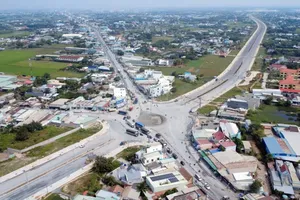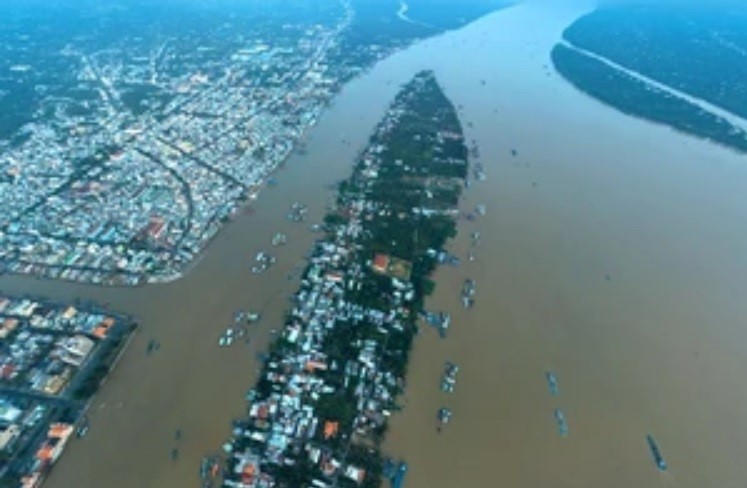
The Mekong Delta has around 2 million hectares of rice fields and fruit trees. These farmlands are facing serious irrigation water shortage just like the disaster in 2016. Among them, approximately 400,000 – 500,000ha are in critical state, asking for an urgent measure to maintain sufficient freshwater supply.
The downstream of the Mekong River has three major reservoirs for the sustainable development of related ecosystems, namely Tonle Sap Lake in Cambodia, the Plain of Reeds (about 700,000ha), and Long Xuyen Quadrangle (590,000ha). Seeing that rice prices recovered significantly in 2023, the provinces of An Giang, Kien Giang, and Dong Thap have overused closed dikes to grow three rice crops per year.
The direct effect of this act is a loss of certain space in the two main reservoirs in the Vietnam’s sections, when they should have absorbed floodwater from the upstream of the Mekong River each year. This has led to unwanted flooding situations in other places like Can Tho City and Vinh Long Province.
As floodwater cannot enter farmlands, it flows directly to the sea in the rainy season. When the dry season comes and the water flow of the Mekong River weakens, the delta in Vietnam also experiences freshwater shortage, resulting in more severe saltwater intrusion.
“The integrated planning for the Mekong Delta clearly states the necessity to reduce intensive rice farming to recover the space in both the Plain of Reeds and Long Xuyen Quadrangle for floodwater storage. The planning’s vision until 2030 details a retreat of freshwater areas inward and a transformation of anti-salinity-intrusion areas back to their natural state of seasonal alteration between fresh-saltwater conditions”, informed Nguyen Huu Thien – an expert on ecosystems in the Mekong Delta.
Resolution No.120/NQ-CP by the Government on Sustainable Development in the Mekong Delta Region to Adapt to Climate Change stressed that the water resource is the core and foundation for any strategic development of local planning or policies. It is necessary to have comprehensive management across the whole basin, along with effective and economical use of water as well as other natural resources in the region.
Based on this resolution, many scientists proposed that the Mekong Delta region, especially the Plain of Reeds and Long Xuyen Quadrangle, should reduce its intensive rice farming and accommodate two crops per year in order to decrease the need to construct closed dikes. This move is expected to retain more flood water for the dry season of the following year, and thus can effectively fight against salinity intrusion.




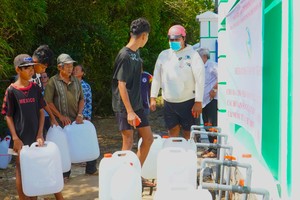
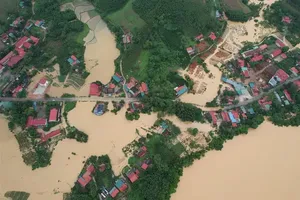




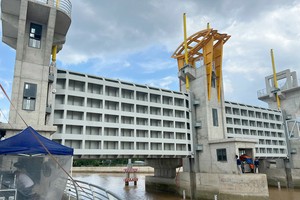


)



